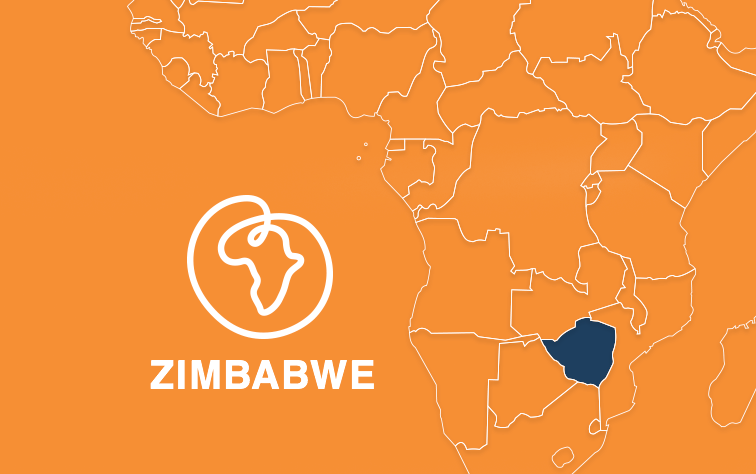The Postal and Telecommunications Regulatory Authority of Zimbabwe (POTRAZ) recently announced in its 2015 third quarter report that there are almost 12, 4 million active mobile phone users in Zimbabwe. This figure is derived from statistics it acquired from all mobile telephone companies it licensed to operate in Zimbabwe.
Apart from mirthful comments from observers as to how the number of active lines in Zimbabwe are close to equaling our population figure of 13 million (a lot of people apparently own more than one sim card), the report makes for fairly interesting reading and interpretation. And there have been a number of insightful interpretations of this report, most notably from TechZim.
The most obvious issue that emerges is that the increase in mobile connectivity, even if 1,3% for the last quarter of 2015, is a good thing for freedom of expression and access to information. Though these statistics are rarely viewed this way, there is no doubt that the ability of more Zimbabwean citizens to connect and talk to each other via mobile phones is a progressive democratic development. The only catch however remains that mobile phone content is still subject to criminal defamation and also that regionally, ours are comparatively high costs of utilization of mobile phones for voice calls and in some cases data connections.
But all the same, the latter point is mitigated by the fact that, and this is in the quarterly report, there is increased demand for data services. This data has also had the added effect of providing alternatives to voice calls on mobile devices. These alternatives are listed as Whatsapp, Skype and Viber. This however has not stopped voice call revenue still constituting 60% of the revenue made by mobile phone companies.
Greater connectivity and a large number of base stations are to be found, as expected, in the urban as opposed to rural areas. But there is an inevitability to the expansion of mobile connectivity in the rural areas largely due to what is perhaps the most physically utilitarian value of the mobile phone in rural areas, that is, mobile money transfers. The number of people connected to mobile money systems have increased though their ability to deposit significant amounts into mobile money accounts has not. As of 2015 there are now over 6, 7 million subscribers to mobile money, an increase of 7,1% . It is an increase that will likely continue much to the chagrin of formal banks.
As for fixed telephone connections, the decline in connectivity is largely due to the impact that the mobile phone continues to have. Fewer people have fixed telephone lines, with corporate bodies taking the majority of usage statistics at 69%. Even fewer Zimbabweans are using the traditional mainstream courier services to send and receive goods or information.
The POTRAZ report also concludes, on the basis of the statistics it presents, that ‘ as revenues from voice and sms services continue to decline, the future of telecommunications is data’.
This conclusion may initially appear to be a straightforward one but it has telling implications on the increased importance of the mobile phone in the everyday lives of Zimbabweans.
Without a doubt it is the now very much preferred method of communication, not only for social conversations as in the past but also for multiple information processing, receiving and transacting platforms . This with the added function of becoming a tool for money related transactions makes our mobile phones revolutionary in relation to how our everyday lives are now arranged. In fact, the continued rise in the reliance on mobile phones will inevitably affect our economics, politics and social interaction. Its all a question of whether we harness these new technologies and increased over reliance on data to best democratic effect.
As it is, and as one can infer from the POTRAZ report, the highly competitive aspect of our telecommunications industry and its primary motivation by revenue collection/profit means that the public interest value of its expansion remains obscured and arrived at by default. It also means for example, there will be continued disequilibrium between rural and urban connectivity because the current model merely follows the money, as opposed to the communications for development need.
Admittedly private mobile companies will say such an approach is fundamentally the responsibility of government especially through the levies and license fees they pay. But the evident rider has been that the slower realization and roll out of what are even faster communications technologies such as long term evolution (LTE) connectivity are directly linked to the ability to milk the market while one still can. Especially in a highly competitive and oft times politicized via licensing one as is Zimbabwe’s telecommunications market. Some of us would do well to remember the days of ‘disappearing airtime’ on our respective networks.
Government, through its regulatory frameworks is also not without fault. Its primary view of the telecommunications industry as a critical state revenue base has also fueled this unfettered profit motive. In the process what obtains is almost the equivalent of a quid pro quo with the telecommunications companies saying the equivalent of its okay for you to go ahead and tax us, just allow us to also make as much profit as we can, while we can. Especially before the internet or access to affordable data, especially via mobile telephony, inevitably becomes a basic right.



